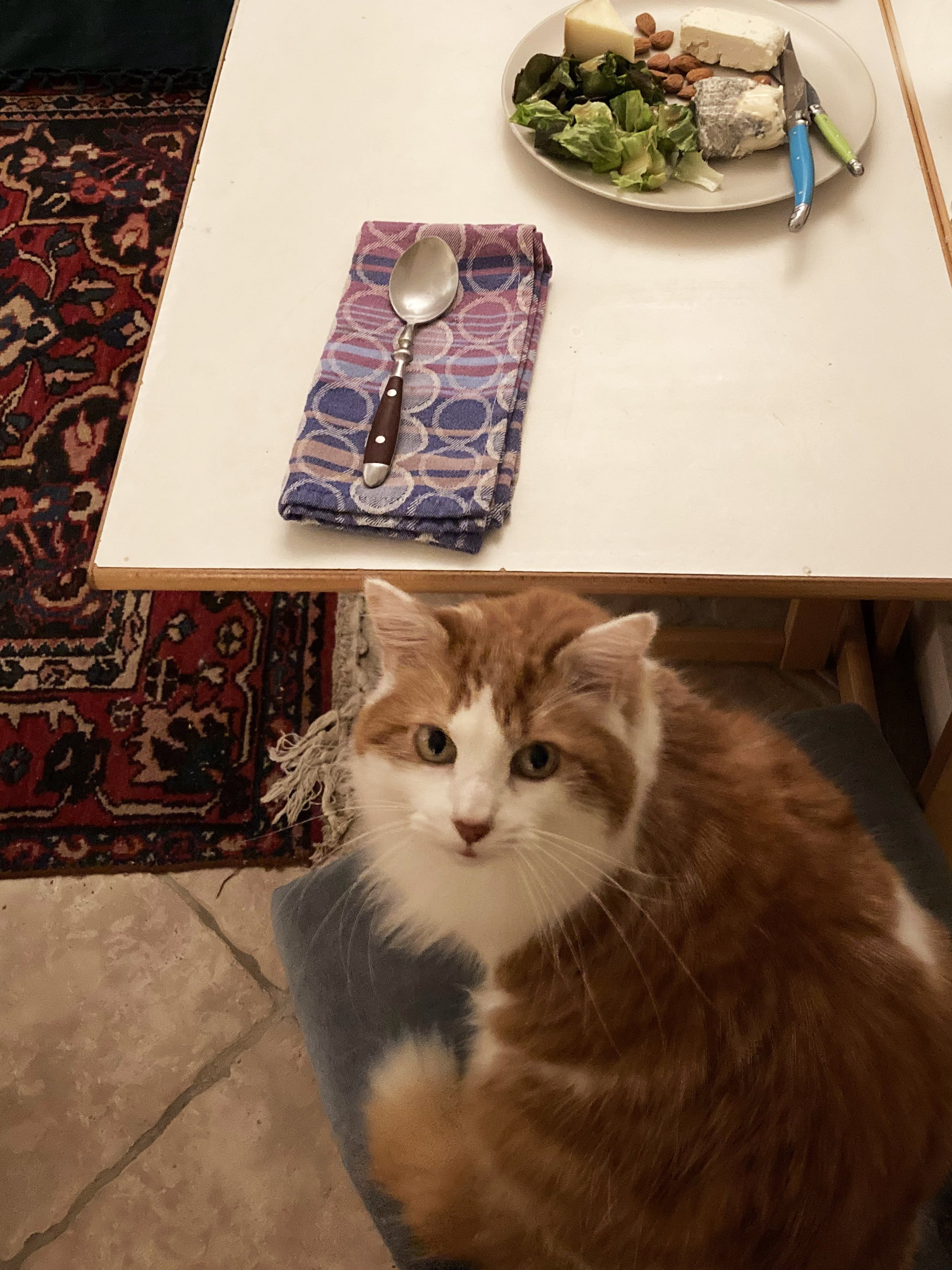Prioritizing Writing Plans Over Goals
Prioritizing Writing Plans Over Goals
"As I sent them off, I took a moment to bask — I’ve dreamt of being represented by a literary agent for almost a decade, and here I was, closer than ever.
But let me pause, and try to sum up the steps it has taken to get this close to that goal: commit myself to writing a second novel; write a first draft in notebooks; type up that draft then edit it for clarity; join a novel writing group; submit and revise chapters with them over the course of two years; read full drafts myself and do edits based on the feedback of writer friends; get through four novel drafts then send it to a developmental editor; revise based on her feedback; do a final read-through; put together a query package; get feedback on the query package; put together a list of agents and start querying; have a revelation and change the last fourth of my book; get back notes for a revise-and-resubmit; spend three months doing those edits; tweak my query letter again; meticulously research agents; wait, wait, wait.”
Article for DIYMFA about making a writing plan, breaking big projects into small steps, and finding your path to a finished novel.
What it Takes to Be a TikTok Poet
What it Takes to Be a TikTok Poet: Essay for the Millions
“Before the video is over, I’m snickering and sending it to my TikTok-addicted best friend. He’s a New York wine exec whose only experience with poetry is at my readings. Until now. Onscreen, a manicured hand opens a slim book against the backdrop of rumpled bed sheets—then a perky woman’s voice starts reading…”
An essay for The Millions about TikTok, the poetry content mill, and how we define artistic merit.
When Do You Need an Author Website?
When Do You Need an Author Website?
"A few weeks ago, I was catching up with one of my writer friends. We became close when our novels were published by the same micro-press. Their marketing was non-existent (more on that later), and an interview I’d done with her after its release was one of its few pieces of publicity.
But she wasn’t bemoaning non-existent sales. In fact, she primarily works as a translator, and she’d recently been nominated as a finalist for the National Book Critics Circle Award in Translation. “Congratulations,” I said. “Put that on your website.”
“I don’t have one,” she replied. “Sometimes I post stuff on Facebook. Do you think anyone reads it?”
My inner marketer flung up her hands in horror. Target audience. Ideal reader. Building your list. Establishing authority. My friend was spurning these tenets to a writing career? But my inner artist was impressed. Damn, you can get this far without a website?"
Article for Jane Friedman about choosing your writing location, committing to consistency, and letting your muse know where to find you.
How to Find a Writing Group
How to Find a Writing Group
"My New Age friends claim that they've started groups by just 'putting it out to the universe.' Now, I love this sort of talk; I always picture the universe hearing the call, and flipping breathlessly through its little Rolodex, because these friends have all ended up in flourishing writing groups. So who's to say?”
–– Anne Lamott in Bird by Bird: Some Instruction on Writing & Life
How it started…
Back in the fall of 2019, I was one draft into my second novel and in need of help. I’d ripped down and re-written my first book many times over, and was loathe to repeat that excruciating process. Ongoing feedback would save me from the sickening revelation that I’d spent months writing in the wrong direction.
I wanted a writing group to help break the project into smaller pieces, give accountability and deadlines along the way, offer me constructive feedback, and imbue the gargantuan task of writing a novel with ease and some fun…yet I had no idea how to find one.
How to Find a Writing Group Online
An online writing group is an easy way to meet other writers, share your work digitally (often via Google Drive), and connect from miles away. Keep in mind that you can also form a smaller group from writers whose work resonates with you. Here are a few places to look:
Eventbrite, search for “writing workshop.”
Inked Voices has dozens of groups based on genre, experience, and style (drop-in vs scheduled).
The Write Time Monthly (a donation based group run by me and Matt Jones).
The Write Time Ten-Weeks (a ten-week workshop run by me)
Drop-In Writing Circles (online and in-person at Hugo House in Seattle).
Drop-in Classes (online and in-person at Brooklyn Poets).
Ask your writer friends if they’ve heard of anything – never underestimate the power of your network.
How to Find an In-Person Writing Group
Yes, it’s old-school, but many libraries and bookstores are home to writing groups. Here’s how to figure out what they’re offering:
Ask the librarian or check out their bulletin board for upcoming meetings.
Check their website and see what’s listed under upcoming events.
Audacious step: ask the librarian if you could start a drop-in writers group and see who shows up.
Start with a Writing Class
You’re guaranteed to find other writers who’re serious about their craft if they’ve signed up for writing classes. Just make sure to choose a topic that relates to your writing and what you’re planning on workshopping. Here are a few reputable writing organizations to check out:
Hugo House, based in Seattle (online and in-person)
Grubstreet, based in Boston (online and in-person)
The Loft Literary Center, based in Minneapolis (online and in-person)
Sackett Street Writers, based in New York City (online and in-person)
Wait, do I even need a writing group?
Yes, you need deadlines.
You need support — a good writing group will tell you what’s working, as well as what isn’t.
Speaking of which, you need to know if you writing makes sense, is boring, or is trying too hard.
Lastly, what few people realize – editing other people’s writing will make you a better writer.
Bonus Writing Group FAQs
What do I do at my first meeting?
The best approach is to audit the group and not submit your own work. This way, you can listen to how they give/receive feedback and see how it would feel to hear similar comments about your writing. Remember, not all writing groups are created equal, and it’s important that you feel safe and supported by your peers.
Do I need to join a writing group in my genre?
Again, it depends on the group. If you’re the sole poet in a group of novelists, they may not be the best reader for your taunt lines. At the same time, if writers are bringing flash fiction and creative non-fiction, your epic poems might fit right in. If you’re in doubt, check with the other group members and bring a piece in for a test critique.
Still looking for a writing group? I’ll be starting my next ten-week session in May 2025.
Click here for more info.
How Finding Your Why Helps You Keep Writing
How Finding Your Why Helps YOu keep Writing
"As many of us know, jigsawing words into flawless sentences isn’t a choice—it’s a necessity for our mental health. At the same time, it can be hard to articulate the reason why we write beyond Not Losing It. In fact, when I think back, all the questions about my work, I’ve never been asked why I write.
And this is the one question that would help us writers keep writing. Pause and reflect—why do you write? This question isn’t to scare you away. It’s to give you a reason to keep going. Here are a few different “whys” as well as exercises to help you find yours."
Article for DIYMFA about choosing your writing location, committing to consistency, and letting your muse know where to find you.
Review: The Traces by Mairead Small Staid
Barrelhouse Reviews: The Traces by Mairead Small Staid
“Oh, the joy of being young, artistic, and in Europe—the infinite possibilities of any city, museum, or stranger. This thrill courses through Mairead Small Staid’s essay collection, The Traces. At age twenty, Staid spent a semester studying in Florence, and these memories connect the work’s eleven essays. By analyzing the author’s past with intellectual rigor, The Traces expands collegiate gallivanting into a discourse on happiness as a place with memory as its fickle guide.”
A review for Barrelhouse of Mairead Small Staid’s book-length essay, The Traces.
Always Read the Acknowledgments Page
Always Read the Acknowledgments Page
Post for Jane Friedman about the reading the acknowledgments page, finding literary connections, and expressing gratitude.
Location, Location, Location
Location, Location, Location
"During my final year at Pomona College, whenever I had a serious deadline, I would put on my glasses and head to the philosophy library. My glasses were tortoise shell with round lenses and did nothing to help my vision. Seriously, they were filled with fake glass. And the philosophy library might as well have been filled with fake books, since I never took one off the shelf. I was an English major who constantly schemed to write more short stories and fewer research papers.
But still, I packed my bag, put on my glasses, and went to that wood-paneled library to write…"
Article for DIYMFA about choosing your writing location, committing to consistency, and letting your muse know where to find you.
The Power of Sitting With Your Critiques
Power of Sitting With Your Critiques
"Speaking of getting defensive, often critiques do cause an emotional reaction. Instead of blaming the person for their delivery or vowing to burn the next thing they write, take a moment to reflect. Is your reaction coming from a deeper insecurity? A past criticism? Sometimes the hardest critiques to swallow are the most relevant. And other times, they’re brusque and off-base. Be honest with yourself and stand by what’s important to you."
Article for Jane Friedman about receiving critiques, listening receptively, and standing by the soul of your project.
The Double-Edged Sword of Deadlines
The Double-Edged Sword of Deadlines
“I ‘finished’ my first novel when I was twenty-five. And by finished I mean, I had ten copies of the manuscript printed and bound at Staples. It would only take four more years for a vague semblance of this story to be published as Purple Gold.
At the time, my goal was simple—to gift this nascent novel to my closest friends and family as a birthday present to myself. I hit my deadline and then went on a birthday bender (not necessarily part of the recommended advice)…”
Article for DIYMFA about self-imposed deadlines, knowing the way you work, and letting go of perfectionism.
Draft Day or Learning to Love Your Manuscript
Draft Day or Learning to Love Your Manuscript
“I always get frustrated when my friends congratulate me on “finishing my book.” Just because I’ve written through to the end doesn’t mean I don’t have months of editing ahead. And even if I’m sending it to agents or editors, there’ll be more work after that.
Hence, the Final(ish) draft—the one you’ll send to anyone whose time you didn’t want to waste on the earlier ones. This draft is the best you can do at this given moment while acknowledging that it’s likely to change before it’s released to the masses….”
New article for DIYMFA about printing drafts, phases of edits, and embracing the steps of the creative process.
Recovery
Recovery
“I’d arrived from Ibiza with only a backpack. The flight was so easy there was no reason to say no to Elliot’s invitation. At school, he and his friends were called The Intellectuals — studying philosophy or art history and dabbling in esoteric drugs. He’d been the one who organized lavish parties, which had grown from dorms, to rented Victorians, to his family’s island home. His twenty-seventh birthday was an excuse to throw another, and of course, he would. I was a year younger, but had already had enough brushes with the twenty-seven club to value survival over revelry.
Elliot and I were both in Europe but he hadn’t seen me in years, and he was inviting the person he’d known — the party girl-turned-DJ who spun night into day. Still, his email was an unexpected gesture, and I took it as a sign of something shifting. Elliot didn’t mention me mixing, because we were friends. Friends who gathered on islands.
We spread from the villa’s foyer into the living room making introductions. I met women who looked like models because they were, and their boyfriends who were as witty as the women were beautiful. There were more of Elliot’s nouveau European friends than I’d expected, and Cal was the only one from school I knew. He was his usual buoyant blonde self, and when we hugged, he ran his fingers down my arms.
We divvied up the rooms, and I took the front one with a four-poster bed and matching vanity table, where a different woman would’ve made herself up. The last time I saw my dad’s wife, Laurie, she gave me a basket of lotions and creams — insisting her regimen would restore my youthful luminosity, as if anything topical could turn back my twenties…”
Short story for Derailleur Press about ambiguous loss, sobriety and island revelry.
Reaching For My Family...
Reaching For My Family – And My French Not-Husband
“My mom called me three times at lunch. I was sitting outside on a gray French November day. The meal was chilly, but it was the fall of 2020. We were lucky restaurants were even open. It was the final day before Paris’s second confinement, and the city had a cold, paranoid energy. My friend arrived with a backpack full of just-purchased puzzles, replacements of the ones he’d finished last lockdown. But when I saw my missed calls, I couldn’t have cared less about puzzles, old or new.
Despite my best efforts, WhatsApp rarely rings on my phone. After four years of living abroad, being reachable is never as easy as I need it to be. But sometimes a missed call tells it all. And as I dialed my mom in California, I already knew what she would say: Grandma was on her deathbed. When could I get there?
Back at my apartment, I looked at plane tickets to San Francisco, clicking faster as options appeared and disappeared. My body was shaky with indecision, and I wanted my French partner there to assess the risks. I’d moved in with him for the first confinement, and he was the human hand-sanitizer dispenser who kept me updated on transmission rates, who trained me to wash my hands then lock our door. It’s some combination of freak luck and his loving diligence that have kept us both virus-free.
But he was at his parents’ house in a tiny village outside of Bordeaux where he’d decided to stay when the French government announced the confinement. It forbade both interregional travel and daily errands, except for government-approved reasons. Getting to Paris wasn’t the only administrative hurdle: We have a French civil union, which isn’t recognized internationally; ever since the travel bans of March 2020, he had no legal means of entering the United States with me…”
An essay about loss, confinement, and how the government tries to define family.
Land of the Living
Land of the Living
The Mistress of Books: Interview
The Mistress of Books: Interview
“I grew up in a small, rural town near an apple orchard, woods, and fields, and I spent the vast majority of my childhood reading. I remember in 7th grade my best friend and I decided that we were going to read every book in the library (laughs). I think we read almost 120 books that year! And we also didn’t have cable TV at home. We had a television to watch movies but there was very little to do besides run around the woods and read, which now I’m really grateful for. And I’ve always loved reading, so I was never bored.
When I was in second grade, I got a journal and I really wanted to learn how to write in cursive so I could just fill all of the pages of the journal with cursive. And now I write in cursive and I have many journals like that, and I think about that sometimes (laughs)…”
Interview with Molli Sébrier of The Mistress of Books on the Parisian writing community, artistic lessons, and growing into our creativity.
Read full text here.
Reborn
Reborn
“The new doctor is Indian, speaks English, and we meet at her office on Boulevard Picpus. Platypus Street, I think as I wander through eastern Paris, clutching two sheets of her health initiatives. They’re almost too esoteric for me, and when I tell Fred what I must do to become a well-circulating, energy-filled individual, he calls my doctor a charlatan, spiking my anxiety, until I call her that too. My charlatan.
My constitution is endangered by lack of routine, my seventh-floor chambre de bonne smack in the middle of the city, bright lights, and loud noises. Through my meditation cushion, through the oriental rug, through the building’s stories, I feel the metro growling. Already there are horns and sirens; decibel levels have increased since the transit strikes and the weekly protests screaming past my door. The obvious solution is moving into Fred’s serene side street. Charlatan’s orders.
These days I eat my lentils piously, always pre-soaked, putting down my spoon between mouthfuls. I’ve acquired a new thermos which will save me from the dangers of cold water. But when I unscrew it in the corner of the library, the ginger tea inside is scalding, undrinkable.
My younger body thrived in adversity—tumblers of whiskey on the rocks topped off with Diet Coke. Now even seltzer’s bubbles are forbidden—liquor and ice both non-starters. I think of the bottomless coffee, street meats, reckless quesadillas. The audacity. Tortilla chips were my last hope, but my charlatan took them away. No snacks and nothing airy. Remember, I’m already ungrounded…”
Essay on wellness, presence, and slowing down for Talking Writing.
Read full text here.























